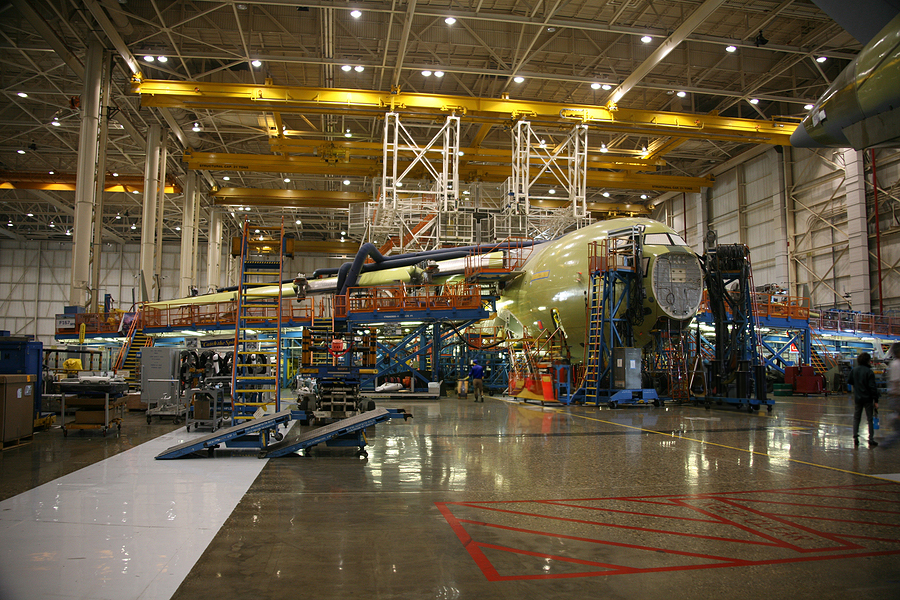
6 Ways to Help Streamline Manufacturing Operations
Manufacturers today deal with greater demands from consumers than ever before. It is vital for manufacturers to deliver on time, every time. Fail to do so and they will lose customers, revenue, and credibility.
Therefore, streamlining operations is essential. This doesn’t mean manufacturers need to invest in expensive equipment or high-performance technology. Often, what needs to change is how people work and the strategies businesses can employ to support this.
Let’s get started.
Why is it so Important to Streamline Manufacturing Operations?
Streamlining manufacturing processes ultimately maximizes a company’s profits and helps them stay competitive. Here are just some of the reasons why it’s so important:
- Increased Customer Satisfaction: streamlining manufacturing operations ensures that customer orders are received and fulfilled faster. Providing great customer service endears your company to your customers and keeps them loyal for the long-term.
- Cost-Effectiveness: every business wants to save money and streamlining operations is one of the best ways to achieve this. A streamlined manufacturing process requires less labor and significantly reduces time spent troubleshooting errors. This leaves more time (and money) for the things that are important – like better meeting customers’ needs.
- More Efficient Work Flow: when you have a streamlined manufacturing process, you have typically ironed out issues and eliminated bottlenecks that were causing delays. This improves the manufacturing process and results in a more efficient workflow. It enables manufacturers to produce goods faster, meet customers’ requests sooner, and achieve all of this without compromising on the quality of the product.
6 Ways Manufacturers Can Streamline Operations
Streamlining operations can feel like an overwhelming task at first. However, with the right strategies in place, it doesn’t take long to improve efficiency and boost productivity. Here are six tips to get you started:
1. Identify Issues in the Production Line
Every manufacturing operation has a bottleneck. This is a stage in the manufacturing process where things slow down or perhaps even stop. Bottlenecks are a nuisance and can lead to severe delays, time and labor inefficiencies, and increased costs. Identifying bottlenecks is essential for optimizing the production line and helping everything run more efficiently.
There are a few ways you can identify issues in your production line. For instance, you should look for signs of the following:
- Long wait times: if there are long wait times for customers or work is delayed because you’re waiting for materials or products to be delivered, this can cause bottlenecks and should be addressed as soon as possible.
- Backlogged work: you may also discover areas in your process where work is backlogged and piling up, causing a bottleneck that is harming your manufacturing efficiency. Taking care of backlogged work as a priority will help relieve these bottlenecks and get your process back up and running again.
- Machine Issues: sometimes machines fail and this could be due to lack of maintenance, outdated equipment, or poor staff training. Identifying machine issues and fixing these can have a huge impact on operation efficiency.
2. Support Faster Payment Processing
As a business owner, you know the importance of faster payment processing. Whether you’re paying your suppliers or your customers are buying your products, faster payment processing keeps everything running smoothly.
The simpler your payment process is, the better so spend time to find the best card reader for your business operation. Streamlining both the supplier and customer experience by offering online payments is a game-changer.
Online payments make it easier for customers to purchase from you, removing delays in the payment process and reducing cash flow issues. This helps streamline operations and keep everything running smoothly.
3. Adopt Lean Manufacturing Methodology
Lean manufacturing methodology focuses on reducing costs by limiting waste and improving manufacturing efficiency. Lean manufacturing is a great methodology to apply to your business if you’re looking to streamline operations.
For lean manufacturing methodology to be effective, all types of waste in the manufacturing process must be identified and then removed. There are four types of waste you should focus on eliminating as a priority. These include:
- Unnecessary transportation of materials such as equipment, tools, and employees can be avoided simply by optimizing factory layouts.
- Excess inventory. Whether it’s products, materials, or equipment, having excess inventory is a waste as it increases storage costs and slows down processes.
- Waiting time: time-wasting is common in manufacturing operations, either due to idle workers or idle machines. It typically occurs when workers can’t work because they’re waiting on materials or equipment. Machines can be idle when waiting on maintenance or replacement. Optimizing manufacturing processes eliminates this time wasting and boosts operational efficiency.
- Defective products are a waste that must be reduced as much as possible. For every defective product, you have an unhappy customer. This means returns are made and apologies are required, which increases costs and wastes time.
Reducing unnecessary waste goes a long way towards reducing lead times, boosting customer satisfaction, and improving operational efficiency. It is a process of continuous improvement and manufacturers will find that regular adjustments need to be made as customer demand fluctuates. However, adopting the lean manufacturing approach will go a long way towards streamlining your operations now and in the future.
4. Embrace Automation
Automation (utilizing production management software or robots to operate machinery) reduces the need for manual labor. It avoids human error and allows for consistency across all aspects of your manufacturing process.
Many areas within manufacturing can benefit from automation, most notably: payment and accounting processes, order processing, marketing efforts, and inventory management (to name a few!)
According to Industrial Machinery Digest, “One obvious byproduct of automation is increased productivity […] The market should see more businesses turning to industrial automation on various scales. When this happens, the market will be able to see not only more innovative products produced on a larger and quicker scale, but the quality increasing with production speed.”
Adopting automation as part of your manufacturing process will help streamline your operations like nothing else. It will allow your organization to keep up with customer demands and grow as your business grows.
5. Reduce Downtime (where possible)
As mentioned earlier in this article, many things can cause your processes to bottleneck. One of these is downtime.
Downtime is a significant cause of inefficiency in the manufacturing process. Therefore, finding ways to reduce it can improve efficiency. A few common causes of downtime are:
- Machine maintenance requirements
- Equipment failure
- Employee absenteeism
- Bottlenecks in the process
- Human error
To improve on these it is important to monitor your production processes closely. This will let you identify and address any issues quickly and efficiently.
6. Train Employees Well
For employees to do a good job and support a streamlined manufacturing process, they need to know what they’re doing and proper training supports this. Proper employee training is a surefire way to improve efficiency, boost company morale, and support business success.
Establishing an effective team through professional training lets employees add real value to your business by preparing them for higher responsibilities, increasing their productivity, strengthening any weaknesses, improving workplace safety, and boosting production overall.
If you want to streamline your manufacturing operations, it is essential that you properly train your employees. This will go a long way towards supporting your business success.
In Summary
We hope the tips shared in this article have highlighted the importance of optimizing your manufacturing processes and how to achieve this! We know that streamlining your operations can feel a little daunting at first (we’ve all been there!) But with the right strategies we know you can transform your manufacturing process and take your business to new heights.
*This article is written by Sophie Bishop. Sophie is an experienced construction writer with a passion for sharing insights and her experience within the health and safety sector. Sophie aims to spread awareness through her writing around issues to do with healthcare, wellbeing and sustainability within the industry and is looking to connect with an engaged audience. Contact Sophie via her website: https://sophiebishop.uk/.





